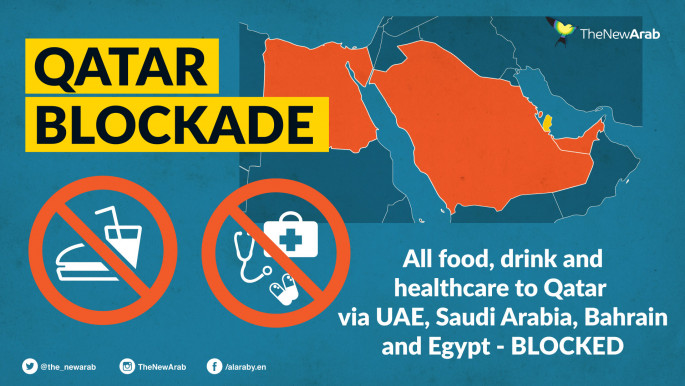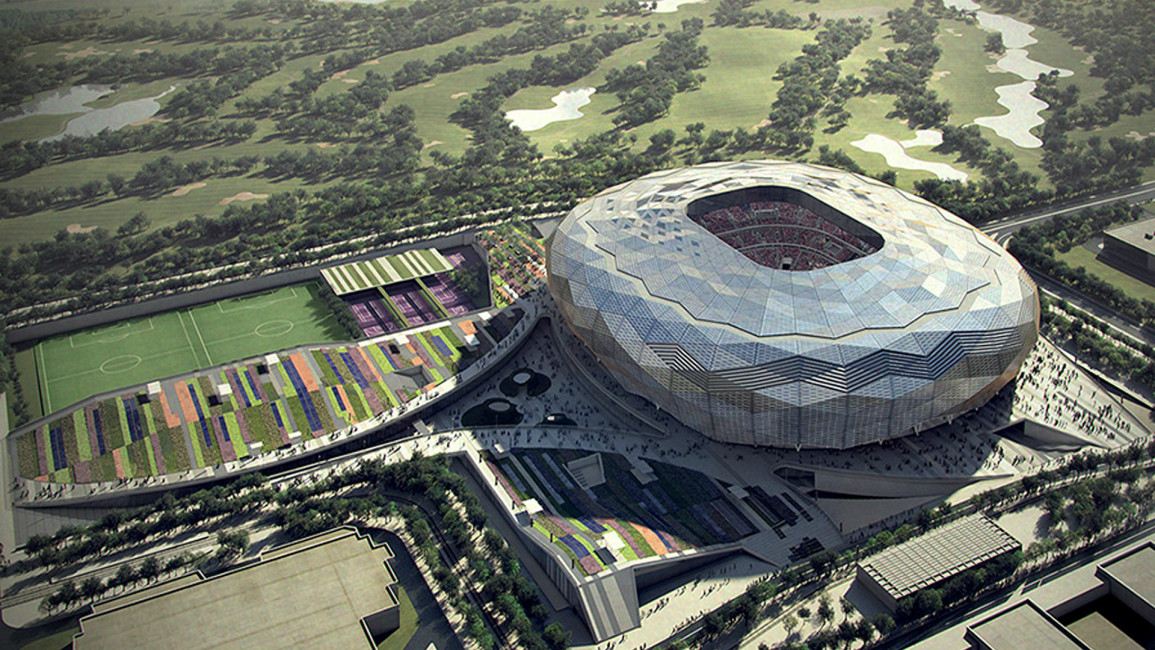
Qatar denies Saudi-led blockade will 'risk' 2022 World Cup
Qatar has dismissed claims that a Saudi-led blockade could see it unable to complete essential infrastructure projects in time for the 2022 World Cup.
It follows a controversial report which alleged that "increasing political risk" means Doha might not be able to host the World Cup in five years time.
This is due to a blockade on Qatar by neighbouring countries such Saudi Arabia's land border and air links with the kingdom, UAE and Bahrain, the report claimed.
Qatar insists that since the blockade it has been able to find other suppliers for the materials needed to construct the eight stadiums that will hold the World Cup.
The man in charge of the World Cup project has said there is "no risk" of the event being cancelled and that construction is continuing at only "minimal" cost increases.
"We have come under criticism and attack over the years, but we have always faced our critics," Hassan al-Thawadi, secretary general of the Qatar World Cup supreme committee, told Al Jazeera.
"Our projects are going ahead as scheduled. This (blockade) is no risk in relation to the hosting of the World Cup."
The study, which was carried out by management consultants Cornerstone Global, was seen by the BBC and warns construction companies working on the country's $200 billion infrastructure programme that it is a "high-risk project".
The report - entitled "Qatar in Focus: Is the Fifa World Cup 2022 in danger?" - claims that "tournament insiders and regional experts" say that it is uncertain whether Doha will go on to host the competition.
The study does not name any sources or provide concrete evidence to back its claims.
It also alleges corruption in the bidding process, while the current blockade of the country by Saudi Arabia, Bahrain, the UAE and Egypt could create "political risk factors" impacting on infrastructure contracts.
These concerns have been dismissed by Doha who said the projects are going ahead as planned.
In June, FIFA published a 430-page report vindicating Qatar from allegations of wrongdoing over its World Cup bid, while analysts say Qatar's economy is strong enough to weather the sanctions imposed by a Saudi-led Arab bloc.
Designed to 'create doubt'
Qatar 2022's Supreme Committee for Delivery & Legacy rebuked the report in a statement to the BBC, saying it was designed to "create doubt regarding the tournament".
"In the context of the current political situation we question the motives of an organisation - which makes no secret of its affiliation to the countries blockading Qatar - of publishing a report based entirely on media reports and anonymous sources."
 |
|
Cornerstone founder Ghanem Nuseibeh last week tweeted that Qatar was "a major facilitator of terrorism financing", echoing accusations made by the Saudi-led blockading nations.
The claims have been vehemently denied by Doha, while the Saudi-led bloc has failed to provide evidence to back their claims.
The 2022 Qatar World Cup has been a political football for the coalition countries. In July, these countries reportedly urged football's governing body FIFA to strip the Gulf nation of hosting rights for the 2022 World Cup.
A month earlier, a Saudi think-tank said Qatar should be stripped of its right to the 2022 FIFA World Cup for "ethics violations" and "support for terrorism".
"Despite the ambitious title of this report, there is absolutely no risk to the future of the first World Cup in the Middle East," Qatar 2022's committee added, according to the BBC.
Organisers insisted that there had been "no impact on preparations as a result of the ongoing and illegal blockade against Qatar".
Doha recently unveiled new plans for the 40,000-seater al-Thumama Stadium, drawing inspiration from the traditional "gahfiya" cap commonly worn under the male headscarves in the Gulf.
Qatar is building a new port and metro system in addition to the new stadiums, part of a $200 billion infrastructure upgrade in the country.



